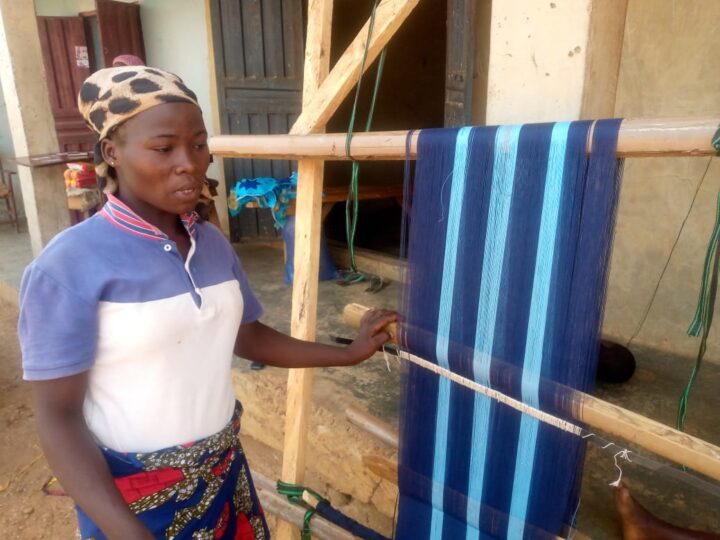Discrimination against women in Nigeria is a problem that predates the country itself.
This is rampant in politics, workplaces, schools, worship centres, as well as customs and traditions.
However, in recent times, women have increasingly become more vocal in the fight against discrimination as they demand equality in every sphere of society.
On March 1, federal lawmakers voted against bills seeking to promote more opportunities for women in political parties and governance.
Advertisement
The lawmakers have been roundly criticised over the issue, with many accusing them of prejudice.
Although Section 42 of the constitution provides for the right to freedom from discrimination, there are several existing laws that are sexist in nature.
To mark the 2022 International Women’s Day with its theme ‘Break The Bias’, here are some Nigerian laws that are discriminatory against women.
Advertisement
The Police Act
According to Regulation 124 of the Police Act, “a woman police officer who is desirous of marrying must first apply in writing to the commissioner of police for the State Police command in which she is serving, requesting permission to marry and giving the name, address, and occupation of the person she intends to marry”.
The section further states that permission will only be granted “if the intended husband is of good character” and the female police officer has served in the force for a minimum of “three years”.
In May 2012, Stephen Adah, former judge of an Ikeja high court, declared this section of the police act as illegal and unconstitutional.
Advertisement
Although the bill seeking to expunge this section from act has passed the second reading at the senate, it, however, is yet to come to fruition.
Similarly, Regulation 127 of the Police Act stipulates that “an unmarried woman police officer who becomes pregnant shall be discharged from the force, and shall not be re-enlisted except with the approval of the inspector-general”.
This provision led to the dismissal of Olajide Omolola, an unmarried police corporal attached to Iye-Ekiti station.
The Nigerian Bar Association (NBA) had filed a suit before a federal high court in Abuja seeking to invalidate the said provision.
Advertisement
However, on February 22, Inyang Ekwo, the presiding judge, held that the law cannot be said to be discriminatory on the grounds that unmarried female officers are made aware of the regulation before they joined the force.
Consequently, the suit was dismissed.
Advertisement
CITIZENSHIP
Section 26 of the 1999 constitution as amended explains the different ways by which one can become a Nigerian citizen.
Advertisement
For a foreigner, one of such ways is to be married to a Nigerian man as stated in Section 26(2).
However, the constitution does not make the same provision for a male foreigner who marries a Nigerian woman.
Advertisement
Recently, the national assembly refused to pass the bill to expand the scope of citizenship by registration.
SPOUSAL RAPE
Spousal or marital rape as the name implies is forced intercourse that happens in marriage.
In recent years, there have been several cases where women have accused their husbands of having sexual intercourse with them without their consent.
However, where such cases are brought before a court, securing a conviction is almost impossible as there is no existing law in Nigeria that criminalises marital rape.
According to Section 357 of the Criminal Code Act, “any person who has unlawful carnal knowledge of a woman or girl, without her consent, or with her consent, if the consent is obtained by force or by means of threats or intimidation of any kind, or by fear of harm, or by means of false and fraudulent representation as to the nature of the act, or, in the case of a married woman, by personating her husband, is guilty of an offence which is called rape”.
But Section 6 of the act clearly states that “unlawful carnal knowledge” (as referred to in section 357) “means carnal connection which takes place otherwise than between husband and wife”.
Section 282(2) of the Penal Code, which is applicable in the northern region, states that “sexual intercourse by a man with his wife is not rape, save and except the wife have not attained the age of puberty”.
This implies that a man may only be found guilty of raping his wife if she has not reached puberty.
ASSAULT AND BATTERY
In Nigeria, indecent assault committed against females carry lesser punishment than that of males.
Under Section 353 of the Criminal Code Act, “any person who unlawfully and indecently assaults any male person is guilty of a felony and is liable to imprisonment for three years”.
However, Section 360 of the same act says that “any person who unlawfully and indecently assaults a woman is guilty of a misdemeanour and is liable to imprisonment for two years”.
Meanwhile, Section 55 of the Penal Code gives room for men to beat their wives as a corrective measure as long as it does not result in “grievous” bodily harm.
ABORTION
Abortion is a controversial topic in Nigeria.
While most people frown at it due to cultural and religious practices, others believe it is an infringement on a woman’s right as to whether or not she wants to have a child.
The combined effect of Sections 228, 229, and 230 of the Criminal Code is to the effect that any woman who, with the intent to cause her own miscarriage, unlawfully gives any poison or other noxious substance to herself, or any person who aids her in doing so, faces a sentence of three to fourteen years in jail.
Similarly, Section 232 of the Penal Code provides that “whoever causes a woman with child to miscarry shall, if the miscarriage is not caused in good faith for the purpose of saving the life of the woman, be punished with a term of imprisonment which may extend to fourteen years or with fine or both”.
CONSENT TO MARRIAGE
Section 18 of the Marriage Act requires the written consent of the father of either party who wants to get married if he or she is below 21 years of age.
The mother’s written consent is only permitted when the father is dead, of unsound mind or out of Nigeria.
DISCRIMINATORY LABOUR LAWS
Section 55 of the Nigerian Labour Act prohibits women from working at night with the exception of female nurses and women in management positions who are not engaged in manual labour.
Under 56(1) of the Labour Act, women are also prevented from engaging in underground work in any mine.
Also, while Section 34(1) of the act allows men who are employed in the public service to be accompanied to their place of posting “by such members of his family (not exceeding two wives and such of his children as are under the age of sixteen years) as he wishes to take with him,” there is no such provision made for women.
Add a comment






